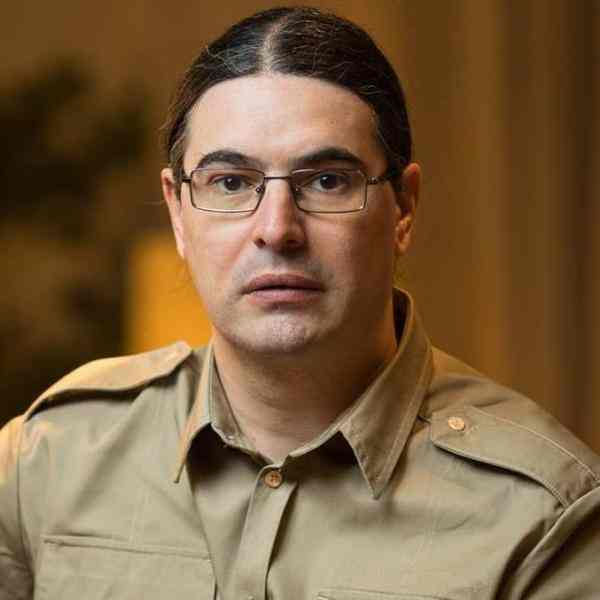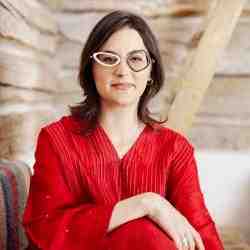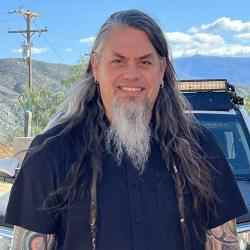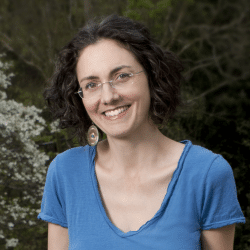Introduction
Building on his own experience in establishing Romania's first citizen-led national parks, Florin is catalyzing a citizen-driven movement for the creation of a functional system for protected areas in Romania. By connecting urban and rural communities through nature, he is creating incentive structures for businesses and individuals to unlock and exchange resources, showing how they can gain benefits from conservation.
The New Idea
Romania has some of the highest levels of biodiversity and last remaining virgin forests in Europe. Yet, almost 55% of its protected areas are in public neglect. Florin is catalyzing a citizen-driven movement for the creation of a functional conservation system for protected areas in Romania.
Florin established Buila Vanturarita, the first citizen-led Natural Park, and Vacaresti, Romania's only urban Natural Park located in the capital city. He learnt that in countries lacking a political vision, strategy, management or public funds for conservation, building exemplary models of park administration is not enough to change the conservation system. To unleash a lasting change, he is aligning interests of conservationists, urban, rural and business communities and activating new incentive structures to engage them in nature preservation, spread new conservation standards and advocate for a stronger commitment from the state.
Capitalizing the strategic position of Vacaresti urban park, situated in an area that has over 10% of Romania’s population, Florin is creating a National Embassy for Protected Areas. This is an advertising endeavour for all other forgotten parks and reserves across the country, 55% of which do not have a warden or conservation manager. He is transforming this park into a gateway project for preserving Romania's natural heritage.
Florin engages visitors in interactive exploration and conservation experiences and showcases other natural heritage sites across the country. He is thus strengthening the urban sensitivity for nature and building a constituency for conservation among citizens who understand themselves as an integral part of natural systems. Crucially, the project leverages the park's location and visibility in the capital city, where decisions are being made and where 50% of the financial resources lay, to convince businesses of the value nature represents for consumers. Florin guides private investments towards protected areas across the country which need resources in order to develop a sustainable conservation infrastructure. Using his experience in prototyping collaborative, grassroots and citizen-led conservation projects in Buila park, he is creating blueprints and workshops to support local groups across the country to develop new infrastructures for conservation.
Unlike other citizen-led conservation projects in Central Eastern Europe, Florin's idea goes well beyond the protection of a specific area or advocacy campaigns. He is increasing the national demand for nature, funnelling private resources for conservation from the center towards the periphery and providing support to local leadership and park administrations. Within ten years, he envisions to foment the spread of a citizen-led and effective conservation model across the country. This will hopefully engender a political vision and strategy for conservation and inspire neighboring countries to adopt bottom-up approaches.
The Problem
Recognized as one of the European areas with the highest biodiversity, Eastern Europe abounds in flora and fauna species, unique natural landscapes and cultural heritage of exceptional values. Romania has the highest density and population of large carnivores in Europe. At the same time, as in many emergent and former communist economies, political decisions regarding protected areas are prone to favor economic interests, thus representing huge pressures and threats to the conservation of this heritage. For example, the restitution of formerly nationalized forests and changes in land ownership segmented protected areas and enabled abuses such as illegal logging and conversion of forests into meadows and infrastructure development areas. The Romanian Court of Auditors estimates that the volume of illegal logging reached 925.372 m3 in 2013 (mostly in state-owned forests managed by the National Forest Administration Romsilva), 60% of which has not been regenerated, thus creating a loss of 45m euro in just one year. Moreover grazing activities, modifications of wild rivers, wildlife hunting and poaching, uncontrolled tourism and infrastructure development also threaten these natural wonders. National agencies are being established to coordinate and support protected areas management, yet often, as is the case in Romania, they lack resources and actual power.
While decision making usually remains centralized, the management of protected areas is often delegated to state authorities or to non-state actors. In most countries, the financing of protected area management is also partly delegated at the very least. Romania is an extreme example of this, as no funds are allocated through the state budget except for Danube Delta Biosphere Reserve which is under the direct management of the Ministry of Environment (BFN 2014 study).
According to the World Bank, Romania designated ca. 24% of its land as protected areas, 10 percentage points less than neighboring Bulgaria and Croatia. Based on calculations using data from the National Agency for Protected Natural Areas, 55% of the total number of protected areas, representing 27% of the protected surface, do not have an administrator or warden and 48% have never had one. Of the total surface of protected areas which currently have an administrator, approximately 32% is managed by the National Forest Administration Romsilva, a state company whose main object of activity is forestry, and other 30% is shared between hunting, fishing, forest-owners associations and private companies. As the state does not finance the administration of protected areas in Romania, the custodians have to finance the conservation themselves. In this context, this often leads to inherent conflicts of interest, as companies like Romsilva actually need to maximize their revenues from logging in order to finance conservation.
The totalitarian history of the country has left significant imprints on people's interest and pro-active involvement in solving issues of public interest such as the environment. Rural and predominantly poor populations, though closer to nature, still perceive it as resources to exploit. On the other hand, urban residents often understand conservation from a sustainability and climate change perspective, but are not aware of the natural and cultural heritage the country offers. This increased the communication gap between the two groups who use different languages.
Leveraging the rising civil society, his trust capital and capacity to speak both these languages, Florin saw an opportunity in connecting the two worlds and transforming citizens into protectors of nature. Moreover, using research showing that biophilia or the love of life or living systems is triggered by experience with nature in childhood and that such contact develops further capacity for creativity, problem-solving, enhancing cognitive abilities, relieving stress and improving physical health, Florin is unleashing win-win opportunities for nature and people.
The Strategy
To trigger a bottom-up transformation of the way conservation is understood and undertaken across the country and the region, Florin has developed a three-tier strategy targeting citizens, business and leaders of protected areas. His ultimate goal is that the state takes responsibility for conservation, through citizen pressure, while encouraging citizen-led and participatory projects to preserve the natural heritage.
Florin's thinking has been strongly influenced by his experience as a young student, when together with a team of volunteer colleagues, he went through the burdensome process of establishing Buila-Vanturarita National Park. Within a few years, he turned the park into an exemplary model of citizen-based conservation and local community-based economic development. Fueled by this experience and unhappy with the state of conservation in Romania, when he engaged in establishing the first urban park in the country, Vacaresti Park, in addition to its unique biodiversity, Florin immediately understood the enormous political, economic and visibility opportunities it could offer for the entire natural ecosystem. The 183 hectares of wetland in the middle of the capital city of Bucharest were formed on the site of a hydrotechnical project left unfinished by the Communist regime. Tapping into its strategic location, accessible to over 10% of the country's population, Florin is building in Vacaresti Romania's Embassy for Protected Areas, a place where citizens can connect with nature and discover not only one park, but all other forgotten parks and reserves across the country, most of which do not have a warden or conservation manager. By offering wildlife experiences, he educates and engages a new generation of tourists, environmentalists and active citizens who will not only visit other parks in Romania and support their conservation, but will put on the necessary pressure for policy change and its implementation. He believes that when environmental protection becomes a societal value, law implementation through governmental structures will follow naturally. In just over a year, his team has already received hundreds of requests from schools and families for thematic and wildlife tours. Thanks to Florin's previous experiences in engaging over 5000 children as Junior Rangers at Buila Park, they have launched the Urban Ranger program, engaging citizens to make the park a living school while also protecting it. They are also planning tent trips for schools and families, and building a glass astronomical observation point.
At Buila, Florin has also learnt the importance of building trust through transparency, facilitating open conversations and aligning interests in order to engage local leaders, the community, authorities, researchers and businesses in the conservation process. Instead of seeing the park as a restriction, they need to be enabled to regain their entrepreneurial spirit, a skill that was severely diminished during the communist period, and put to good use the opportunities that a protected area offers. Villagers saw the opportunity to open inns for the increasing number of tourists and some even got their region recognized as a European ecotourism destination. In Vacaresti Park, to coalesce the conservation and local community, Florin assembled a truly multi-stakeholder platform, engaging 48 organizations, including ministries, national agencies for conservation, police, city halls, universities, non-profit organizations such as WWF and the Scouts, health departments, hotels, sports associations, botanical garden, schools, shopping mall and museums. He is currently focusing on scaling this network at the national level, turning the Embassy into a true collaboration space.
In parallel, using once again the park's strategic location and visibility in the capital city, where decisions are being made and where 50% of the financial resources lay, Florin is engaging companies to see the value for their own business in protecting the environment. Having understood the health, social and financial benefits of nature to their clients' lives, companies in the fields of energy, water and retail such as Enel (the largest utility in Romania), La Fantana (a water distribution company) and Kaufland (the largest retailer in Romania), as well as banks such as Alpha Bank and Transilvania Bank, have already contributed over 250.000 euro for 2018 and are now interested in a long-term partnership. At present, he has started to facilitate matches between parks across the country and corporate partners in order to direct corporate investments towards those protected areas which need it the most. Florin is building urban-rural coalitions that demonstrate that conservation and local economic development can successfully go hand in hand.
Last but not least, Florin's strategy focuses on the dissemination of tested approaches for developing effective ecosystems for conservation in protected areas. Building on his own experience and working principles used in Buila and Vacaresti, he knows how important social capital is for the sustainability of a conservation project and for this, local leadership is key. He is developing toolkits and blueprints on how to establish and manage a protected area in a sustainable way in order to support park administrators, wardens or citizens who would like to conserve natural heritage. He also plans to launch a Knowledge and Education Hub to promote research, disseminate conservation standards and transfer positive tested and successful approaches across the country. Florin is also working to introduce the conservation manager in the code of occupations and provide educational opportunities for conservation professionals.
Florin's measure of success is difficult to quantify in the short-term. He works for the conservation of habitats and species which are essential for the benefit of human life. In Buila, 4.500 hectares, of which 3.000 hectares of forests, were saved from exploitation. Based on empirical observations, the conservation status of alpine meadows, rock and calcareous habitats, as well as the number of black goats, deer, bears, wolves and rays have increased. Florin proved that 300.000 euro invested in holistic community engagement for development and conservation generated a value added of 30 million euro in the region, including in ecosystem services. The number of tourists increased over 100 times in just few years: over 25.000 tourists benefit from the thematic trails, biking trails and tours combining nature with local stories, culture and tradition or the speleology summer camps.
By channeling resources, supporting the development of local infrastructure for conservation and generating more demand for nature from the cities, while activating communities of sensitized citizens and investors, Florin's impact has already started to grow exponentially. Activities in Vacaresti Park are being followed by over 60.000 people, opening up the potential for a bottom-up movement. Having inspired and supported various other initiatives across the country, Florin is also looking to transfer the know-how acquired across the region and in African states confronted with similar challenges.
The Person
Growing up in a small village in the South Carpathians in communist Romania, Florin spent his childhood wandering freely in the mountains. In high school, he started to organize exploration trips for his classmates and came to understand the natural and cultural wealth of his region. After studying tourism and the history of arts and travelling across the country, he returned to his village as a tourism guide. He started to spend more time with the local community, looking into its history, understanding its needs and helping his father build wooden houses. As a result, he saw the deep reliance of people on the natural heritage and resources. Unfortunately, with the 1998 policy of land restitution transferring ownership from the state to the original private owners, Florin also witnessed continuous natural degradation due to business and personal interests. Moreover, after the 1999 solar eclipse, he was appalled by the effects of uncontrolled tourism in his childhood mountains.
While continuing his education in Geology in Bucharest, Florin and a group of friends decided to protect the area and sent an in-depth scientific study making the case for conservation to the Romanian Academy. The Academy confirmed the importance of conservation and recommended to the government to establish the national park Buila-Vanturarita - the first ever park established at the initiative of a citizen group.
The administration of Buila-Vanturarita National Park was initially attributed to Romsilva, the Romanian state-owned enterprise responsible for forests, hunting and fishing. Using his know-how, determination and reputation, Florin succeeded in making the case for the first ever partnership between Romsilva and a non-profit organisation in the management of the park. Though not always a comfortable setting, this allowed Florin and his team of over 200 volunteers to transform the park in a national model of community engagement for conservation and development. While remaining engaged as a volunteer in his association and starting new initiatives in Bucharest, since 2011 Florin has acquired the expertise in how to generate systemic change in conservation in Romania and across the region. As a sustainability and compliance auditor at Ikea, he worked crossborder in fields such as water and waste management, energy efficiency, environmental impact assessments and emergency systems and supply chains. A true intrapreneur in Ikea, he has developed new standards for forest exploitations in protected areas that have influenced public policy across the country.




